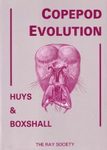![Medical Entomology for Students Medical Entomology for Students]()
Click to have a closer look
About this book
Contents
Customer reviews
Biography
Related titles
About this book
Despite numerous scientific investigations on vector-borne human infections such as malaria, Lyme disease and typhus these diseases continue to threaten human health. Understanding the role of vectors in disease transmission, and the most appropriate control strategies, is therefore essential. Medical Entomology for Students provides information on the recognition, biology, ecology and medical importance of the arthropods that affect human health.
The fifth edition of this popular textbook is completely updated and incorporates the latest strategies for controlling insects, ticks and mites. Numerous illustrations, with new colour photographs of some of the most important vectors, aid recognition. A glossary of entomological and epidemiological terms is included, along with a list of commonly used insecticides and their trade names. Clearly presented in a concise style, this text is aimed at students of medical entomology, tropical medicine, parasitology and pest control. It is also essential reading for physicians, health officials and community health workers.
Contents
Preface to the first edition
Preface to the second edition
Preface to the third edition
Preface to the fourth edition
Preface to the fifth edition
Acknowledgements
1. Introduction to mosquitoes (Culicidae)
2. Anopheline mosquitoes (Anophelinae)
3. Culicine mosquitoes (Culicinae)
4. Black flies (Simuliidae)
5. Phlebotomine sand flies (Phlebotominae)
6. Biting midges (Ceratopogonidae)
7. Horse flies (Tabanidae)
8. Tsetse flies (Glossinidae)
9. House flies and stable flies (Muscidae) and latrine flies (Fanniidae)
10. Flies and myiasis
11. Fleas (Siphonaptera)
12. Sucking lice (Anoplura)
13. Bedbugs (Cimicidae)
14. Triatomine bugs (Triatominae)
15. Cockroaches (Blattaria)
16. Soft ticks (Argasidae)
17. Hard ticks (Ixodidae)
18. Scabies mites (Sarcoptidae)
19. Scrub typhus mites (Trombiculidae)
20. Miscellaneous mites
Appendix: names of some chemicals and microbials used in vector control
Glossary of common terms relevant to medical entomology
Select bibliography
Index
Customer Reviews
Biography
Mike Service is a world authority on medical entomology, with fifty years' experience of research and teaching. He is Emeritus Professor of Medical Entomology at the Liverpool School of Tropical Medicine, and has written over 200 research papers on medical entomology. In 1997 he was awarded the Sir Rickard Christophers medal by the Royal Society of Tropical Medicine and Hygiene, and in 2002 the Harry Hoogstraal Medal by the American Society of Tropical Medicine and Parasitology, for research on medical vectors.
Textbook
By: Mike W Service(Author)
303 pages, 8 plates with 32 colour photos; 128 b/w line drawings
Reviews of the third edition:
" [...] a very well written book that is well suited for its purpose as an introduction for students [...] it would serve well as a quick refresher to the subject even for experienced medical entomologists."
- The Lancet
" [...] undergraduate and postgraduate masters students can continue to rely on this affordable and reliable basic introduction to the discipline of medical entomology."
- Parasitology
"'This is an easy to understand introduction to the field of medical entomology for more readers than just students of biology and entomology [...] [another] appropriate title might be Medical Entomology for Health Care Providers and Public Health Practitioners."
- Doody's Review Service
"[...] a 'must have' for those studying the discipline [...] a continuing strength is its frequent updating cycle and the helpful addition and revision of the further reading section."
- Richard D. Ward, Keele University













![Lebensraum Federkleid: Federn und Federbewohner Heimischer Vögel [Plumage as Habitat: Feathers of Domestic Birds and their Parasitic Residents]](http://mediacdn.nhbs.com/jackets/jackets_resizer_medium/22/225536.jpg?height=150&width=103)




















